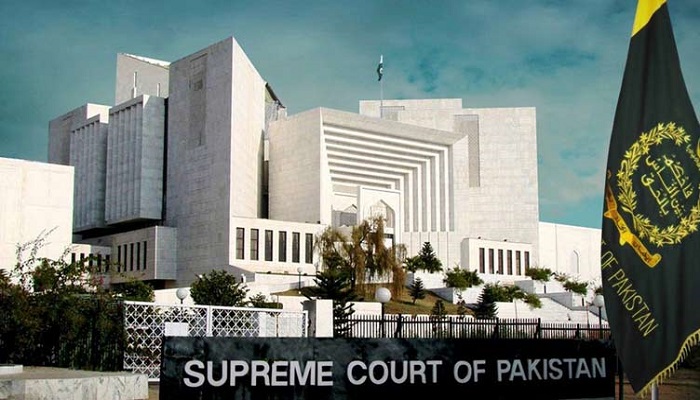ISLAMABAD: The Supreme Court has reserved its verdict in the case related to the lifetime disqualification of lawmakers under Article 62(1)(F) of the Constitution.
Chief Justice of Pakistan (CJP) Qazi Faez Isa, while reserving the verdict, mentioned that a concise decision would be announced soon. The seven-member larger bench, led by CJP Isa and including Justices Syed Mansoor Ali Shah, Yahya Afridi, Aminuddin Khan, Jamal Khan Mandokhel, Muhammad Ali Mazhar, and Musarrat Hilali, oversaw the proceedings.
The case originated from contradictions in the Election Act, 2017, and a prior apex court ruling highlighted during a hearing last month in response to a petition by former PML-N provincial lawmaker Sardar Meer Badshah Khan Qaisrani.
The court took notice of the varying interpretations of the disqualification duration. Qaisrani, challenging his lifetime disqualification in 2007 over a fake degree, was the petitioner.
In Thursday’s hearing, CJP Isa expressed reservations about a lifetime ban, stating it was “against Islam.” He emphasized the need for clarity on whether the disqualification period for a lawmaker is five years, as per the 2017 amendment, or a lifelong ban under Article 62(1)(F).
During the latest hearing, the focus shifted to constitutional interpretation rather than individual cases. Jahangir Tareen’s lawyer, Advocate Makhdoom Ali Khan, argued, and the bench questioned the implementation of Article 62(1)(F) before or after elections. The larger bench deliberated on the possibility of amending the Constitution through sub-constitutional legislation and discussed the implications of lifetime disqualification on an entire constituency.
CJP Isa highlighted the wisdom of the framers of the 1973 Constitution and noted that silence in the Constitution implies a reason. He emphasized that decisions on constitutional provisions related to character rest with Parliament. The Attorney General for Pakistan, Mansoor Usman Awn, referred to a previous case to argue against punishment solely based on Article 62.
The case’s outcome holds significance for numerous politicians, including Nawaz Sharif and Jahangir Tareen, determining their eligibility to contest upcoming elections. The court is tasked with reconciling the conflicting positions on lifetime disqualification, providing clarity on the duration, and potentially impacting key political figures’ future political participation.



















